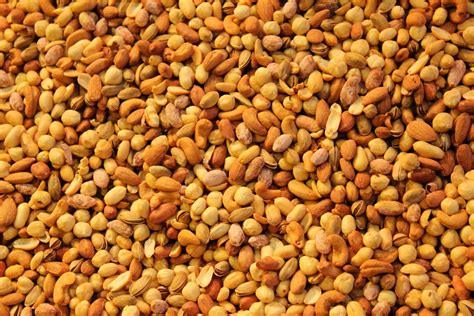How much protein do I need daily for peak muscle growth & recovery?

The Crucial Role of Protein in Muscle Development
For anyone serious about building muscle, improving athletic performance, or simply recovering effectively from exercise, protein is non-negotiable. Often hailed as the building block of life, protein plays a fundamental role in nearly all bodily functions, but it’s especially vital for the repair and growth of muscle tissue.
When you engage in resistance training or other strenuous physical activities, your muscle fibers experience microscopic tears. Protein, broken down into amino acids, steps in to repair these tears and rebuild stronger, larger muscles – a process known as muscle protein synthesis (MPS). Without adequate protein, recovery is hindered, growth is stalled, and performance can suffer.

General Protein Recommendations for Active Individuals
While general dietary guidelines often suggest around 0.8 grams of protein per kilogram of body weight (g/kg) for sedentary adults, this amount is insufficient for those actively pursuing muscle growth and optimal recovery. For individuals engaged in regular strength training or intense physical activity, the recommendations are significantly higher.
Most sports nutrition experts and scientific studies suggest an intake range of 1.6 to 2.2 grams of protein per kilogram of body weight per day (g/kg/day). For example, a person weighing 70 kg (approximately 154 lbs) would aim for 112 to 154 grams of protein daily. Some research indicates that even higher intakes, up to 2.5-3.0 g/kg/day, might be beneficial during periods of aggressive fat loss to preserve muscle mass, although this is generally not necessary for most individuals during a bulking phase.
Factors Influencing Your Individual Protein Needs
Activity Level and Training Intensity
The more intensely and frequently you train, the greater your protein requirement. High-volume resistance training, intense cardio, or participating in demanding sports all increase muscle breakdown and, consequently, the need for protein to facilitate repair and adaptation.
Body Composition Goals (Bulking vs. Cutting)
If you’re in a caloric surplus (bulking), your body has ample energy, and protein can be efficiently used for muscle building. If you’re in a caloric deficit (cutting) to lose fat, a higher protein intake becomes even more critical. It helps preserve lean muscle mass, increases satiety, and supports a higher metabolic rate during periods of energy restriction.
Age
As we age, our bodies become less efficient at utilizing protein for muscle protein synthesis, a phenomenon known as anabolic resistance. Older adults (typically over 50) may benefit from slightly higher protein intakes, potentially at the upper end of the recommended range (e.g., 2.0-2.2 g/kg/day), to counteract sarcopenia (age-related muscle loss).
Special Considerations (e.g., Vegetarians/Vegans)
Individuals following plant-based diets may need to pay closer attention to protein quality and quantity. While plant proteins can build muscle effectively, many are not complete proteins (lacking one or more essential amino acids) or are less bioavailable than animal proteins. Combining various plant protein sources throughout the day can ensure a complete amino acid profile, and slightly higher overall intake might be beneficial.

Protein Timing and Distribution for Optimal Results
Beyond the total daily amount, how you distribute your protein intake throughout the day can also influence muscle growth and recovery. While the concept of an ‘anabolic window’ immediately post-workout has been somewhat refined, it’s still beneficial to consume protein relatively soon after training (within 1-2 hours) to kickstart recovery.
More importantly, aim to spread your protein intake evenly across all your meals. Consuming 20-40 grams of high-quality protein every 3-4 hours appears to be more effective for maximizing muscle protein synthesis throughout the day than consuming most of your protein in one or two large meals. This strategy ensures a sustained supply of amino acids for muscle repair and growth.
Optimal Protein Sources for Muscle Growth
The quality of your protein sources matters. ‘High-quality’ or ‘complete’ proteins provide all nine essential amino acids that your body cannot produce on its own.
- Animal-based sources: Meat (chicken, beef, turkey, pork), fish (salmon, tuna, cod), eggs, dairy (milk, Greek yogurt, cottage cheese, whey protein). These are typically complete proteins and highly bioavailable.
- Plant-based sources: Legumes (lentils, beans, chickpeas), tofu, tempeh, edamame, quinoa, nuts, seeds, some grains (e.g., oats), and plant-based protein powders (pea, rice, soy). While many individual plant sources are incomplete, a varied diet with complementary proteins can provide all essential amino acids.

Can You Have Too Much Protein?
For healthy individuals, consistently high protein intake (up to 3.0-3.4 g/kg/day) is generally considered safe and poses no risk to kidney health. Research has debunked the myth that high protein diets damage kidneys in people without pre-existing kidney conditions. However, excessively high intakes beyond what’s needed for MPS might just be converted to glucose or fat, or simply excreted, meaning diminishing returns. Focus on hitting the optimal range rather than overdoing it.
Practical Tips for Meeting Your Protein Goals
- Prioritize protein at every meal: Make protein the cornerstone of your breakfast, lunch, and dinner.
- Snack smart: Choose protein-rich snacks like Greek yogurt, cottage cheese, hard-boiled eggs, or a handful of nuts.
- Utilize protein supplements: Whey, casein, or plant-based protein powders can be a convenient way to boost intake, especially post-workout or when whole food options are limited.
- Cook in bulk: Prepare large batches of lean protein sources like chicken breast or ground beef at the start of the week.
- Track your intake: Briefly logging your food for a few days can give you a clear picture of your current protein consumption and help you identify areas for improvement.

Conclusion: Fueling Your Body for Peak Performance
Achieving peak muscle growth and recovery hinges significantly on consistently meeting your daily protein needs. For most active individuals, aiming for 1.6 to 2.2 grams of protein per kilogram of body weight, distributed evenly throughout the day, is an excellent strategy. By prioritizing high-quality protein sources, understanding your individual factors, and making conscious choices, you’ll provide your body with the essential building blocks it needs to repair, grow, and adapt, propelling you closer to your fitness goals.









